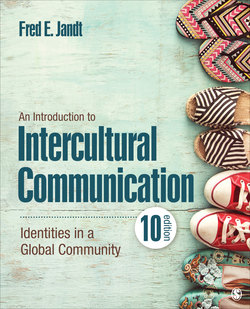Читать книгу An Introduction to Intercultural Communication - Fred E. Jandt - Страница 107
На сайте Литреса книга снята с продажи.
Focus on Culture 3.1 The Greeks Had Aristotle, and the Chinese Had Confucius
ОглавлениеMuch of the research on sensing and perception and most of the examples in this chapter contrast Eastern and Western cultures. Nisbett (2003) and others contend that Eastern and Western cultures literally perceive different worlds. Modern Eastern cultures are inclined to see a world of substances—continuous masses of matter. Modern Westerners see a world of objects—discrete and unconnected things. There is substantial evidence that Easterners have a holistic view, focusing on continuities in substances and relationships in the environment, while Westerners have an analytic view, focusing on objects and their attributes.
Nisbett (2003) has demonstrated that humans sense and perceive the world in ways unique to their upbringing by contrasting Eastern and Western cultures (see Focus on Culture 3.1). Ancient Greeks had a strong sense of individual identity with a sense of personal agency, the sense that they were in charge of their own destinies. Greeks considered human and nonhuman objects as discrete and separate. And the Greeks made a clear distinction between the external world and our internal worlds. Thus, two individuals could have two different perceptions of the world even though the world itself was static, unchanging, and independent of perception. It was through rhetorical persuasion that one could attempt to change another’s perception. The attributes of individual objects are the basis of categorization of objects, and categories are subject to behavioral rules that can be discovered and understood by the human mind. Thus rocks and other objects are in the category of objects that have the property of gravity.
Map 3.1 The Influence of Ancient Greek Thought
Source: Adapted from Nau (2012, p. 77).
Note: Shaded regions represent the Roman and Greek Empires at their furthest extent.
The Chinese counterpart to the Greek sense of personal agency was harmony. Every Chinese was a member of a family and a village. The Chinese were less concerned with controlling their own destinies but more concerned with self-control so as to minimize conflict with others in the family and village. For the Chinese, the world is constantly changing, and every event is related to every other event. The Chinese understood the world as continuously interacting substances, so perception focused on the entire context or environment. Chinese thought is to see things in their context in which all the elements are constantly changing and rearranging themselves.
